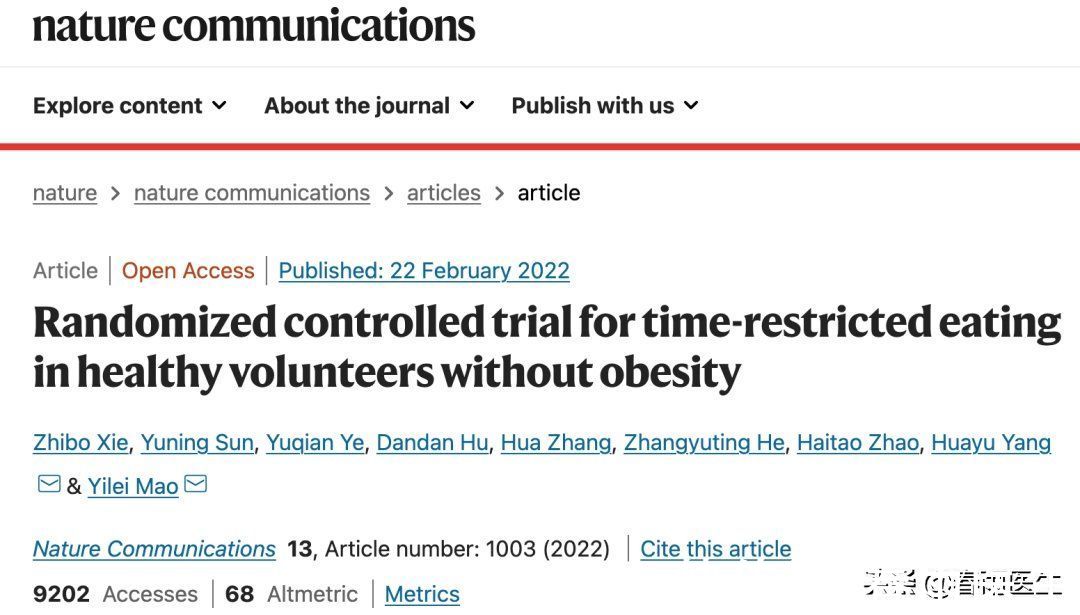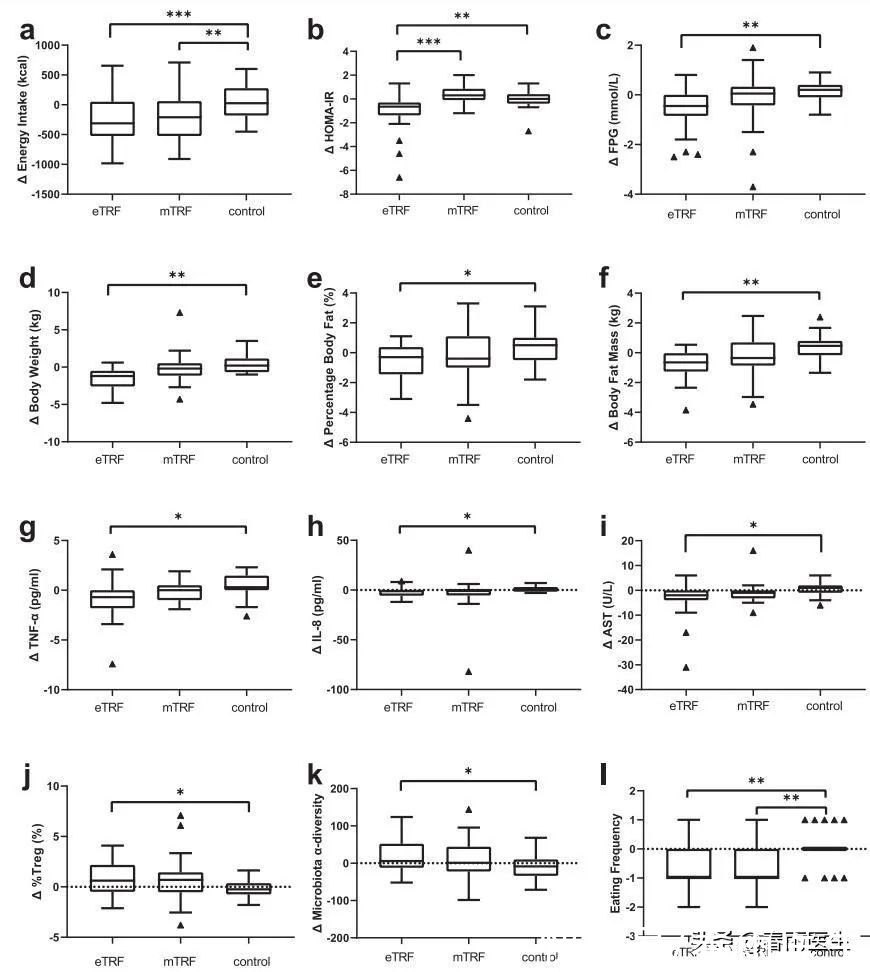Shocked! The secret of Emperor Qianlong’s longevity was confirmed by Peking Union Medical College Hospital!

(Picture source network, invasion and deletion)
I’m sorry, I’ve skinned it a bit
However, the content of today’s article is indeed related to Emperor Qianlong. side.
According to relevant historical records, Emperor Qianlong’s work and rest habits were very regular. Most of the time, he had two meals a day, divided into breakfast and lunch. The meal is between 2:00 o’clock and 1:00 o’clock in the morning, about 5:30~8:15 now, and lunch is not in time, that is, 2:00 p.m. There are only two days of delay of 15 minutes and 45 minutes, but both are No more than 3pm, after which there will be no dinner.
The recent study published in the journal Nature Communications by Prof. Mao Yilei’s team from the Department of Liver Surgery of Peking Union Medical College Hospital showed that span>Eating between 6 am and 3 pm is not only effective in improving insulin sensitivity, but also improving inflammation, weight loss, preventing obesity and increasing gut microbial diversity.

(Source: Nature Communications)
< p>In this way, is Emperor Qianlong’s eating schedule really healthy?
As a form of intermittent fasting, time-restricted eating (TRF, limiting meals to 4-10 hours per day) not only It is relatively easy to achieve and has been shown in several studies to improve metabolic health.
Regardless of morning eating (eTRE, eating between 6am and 3pm time, the equivalent of skipping dinner), or eating at noon (mTRE, which is between 11 a.m. and 8 p.m., equivalent to Skipping breakfast) can have metabolic benefits, but is it better to skip dinner or skip breakfast?
In this regard, Professor Mao Yilei from Peking Union Medical College Hospital led a team to conduct a 5-week clinical trial, recruiting a total of 90 non-obese patients. Healthy volunteers were randomized 1:1:1 to eTRF, mTRF, and control, of which 82 volunteers completed the entire trial (28 in eTRF, 26 in mTRF, and 28 in control).

(Comparison of age, gender distribution, body weight and body mass index among groups/source: Reference [2])
Studies have shown that in terms of energy intake, compared with the control group, no dinner (eTRF) and no breakfast (mTRE) )all were effective in reducing energy intake, and there was no difference between the two groups.
In terms of insulin resistance, eTRF group had a significantly greater reduction in insulin resistance than mTRF and control groups , fasting blood glucose was also significantly lower, while the difference between the mTRF group and the control group was not significant, meaning that skipping breakfast had no effect on improving insulin resistance.
In terms of body weight and body fat,eTRF group lost more weight< /strong>(Δ=-1.6±1.4 kg),Body fat percentage and body mass index (BMI) were also significantly reduced (Δ=-0.60±1.22% and Δ=-0.76±1.01 kg, respectively), while the mTRF group had little difference compared with the control group.
In addition, in the eTRF group, the important circulating markers of inflammation tumor necrosis factor-α (TNF-α) and interleukin-8 (IL- 8) (Fig. 2h), the concentrations were higher than those of the control group, suggesting that eTRF at 5weeks could significantly improve the inflammatory response.
In terms of gut flora, eTRF group also increased the alpha diversity of gut microbes. greater, and there was no significant difference between the mTRF group and the control group for these health benefits.
However, in terms of blood pressure, circulating lipid concentrations, glycated hemoglobin (HbA1c), high-sensitivity C-reactive protein (hsCRP), sleep quality, or appetite , the three groups were not significantly different.

(a. energy intake, b. insulin resistance, c. fasting blood glucose, d. body weight, e. body fat percentage, f. BMI, g. tumor necrosis factor- α, h. Interleukin-8, i. Aspartate aminotransferase, j. Peripheral T regulatory cells, k. Gut microbial α diversity, I. Feeding frequency/source: Reference [2])
Overall, 5 weeks of eTRF improved insulin sensitivity, decreased fasting glucose, decreased Weight and obesity, improved inflammation, and increased gut microbial diversity, all of which were not significantly changed in the mTRF group.
The study also found that the different effects of the two eating periods on metabolic health may be related to biological rhythms. eTRF significantly increased the plasma ghrelin concentration at 23:00, and resistin concentration increased at 12:00 and decreased at 17:00, and no changes in the concentrations of these substances were found in the mTRF group.
All in all, if you’re going on a time-restricted diet of 8 hours a day, instead of skipping breakfast, just eat lunch and dinner, like Emperor Qianlong did , skipping dinner and eating only breakfast and lunch may lead to more health benefits (but get up early).
However, the study also has certain limitations. The majority of participants were female and the number of participants was relatively small, making it difficult to represent the wider population. If it is a group of people with gastrointestinal diseases (stomach ulcers, etc.), or people who often work during special hours (often working night shifts), they should choose the eating time according to their own conditions.
And if you are too hungry in the afternoon and evening, you can also eat healthy snacks such as plain yogurt, nuts, and fruits, and pay attention to controlling the total energy intake That’s it, even if it was Emperor Qianlong, there were still 20 days in a month.

(Qianlong: Hey, didn’t expect it? I still have snacks/picture source network, invade Delete)
References:
[1]Liu Xiaokang. Qianlong’s imperial meal and the style of eating in the capital[D]. Jilin University, 2019.
[2] Yilei Mao, et al. Randomized controlled trial for time-restricted eating in healthy volunteers without obesity. Nature Communications volume 13, Article number: 1003(2022). https://www.nature.com/articles/s41467 -022-28662-5.